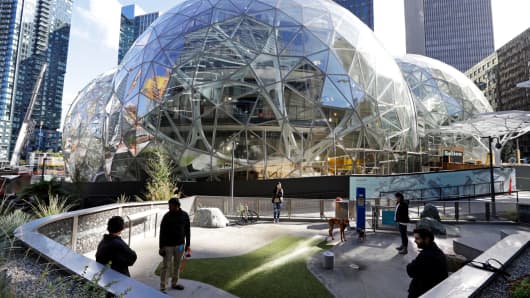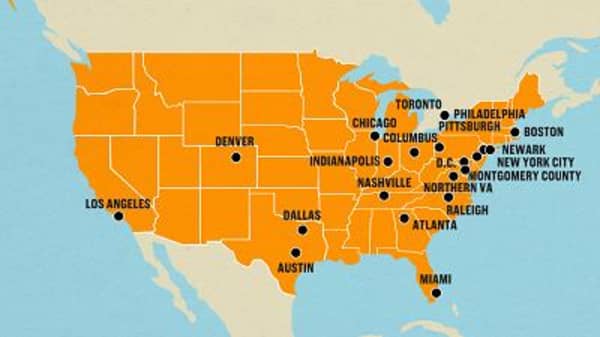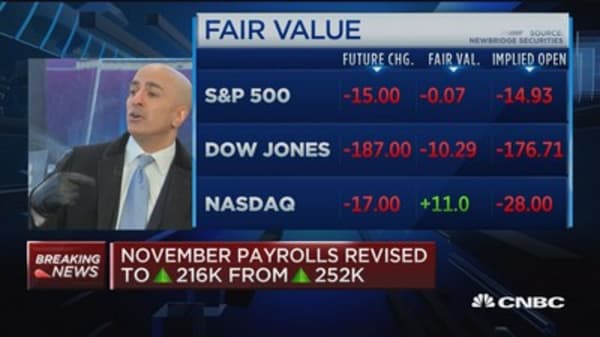Curiously, in covering this effort, USA Today published a map highlighting cities and states that should be out of contention, yet added a footnote about Philadelphia and Pittsburgh which both offer nondiscrimination protections although their state does not. The group therefore lists Pennsylvania as "unclear." Ironically, the exact same principle can be applied to a number of Southern cities urged to be shunned by Amazon: Atlanta, Austin, Dallas, Nashville and Miami. All are progressive communities with legal protections that include LGBT citizens.
We know from experience that the path to our full civil rights is uneven, often inviting different, and possibly conflicting, strategies. We are pragmatists as well as idealists. We know that many leaders and civil rights activists in the nine targeted states also enthusiastically welcome Amazon. They believe as we do, that welcoming more forward-thinking companies helps raise the tide of equality.
They know firsthand the impact that progressive leaders like Amazon can do to help fuel LGBT civil rights. We've seen the clout corporations can have when they successfully work with LGBT communities from North Carolina to Indiana and states to defeat and derail so-called religious freedom laws. In Texas for example, last fall, major corporations across the state united to stop anti-LGBT legislation in its tracks. Two years ago, here in Georgia, many companies banded together to persuade our Republican Governor to veto anti-gay legislation.
If you listen carefully to many LGBT citizens, and especially from the South where we live and work, we do not see bans as the wisest tactic or strongest move in our power. Many instead believe strongly in corporate engagement, by urging CEOs and senior executives to meet with elected officials, to speak out and to give financial support to civil rights groups advocating for equality and nondiscrimination under the law.
Our nation's journey towards full equality for all Americans has shown breathtaking progress and also heartbreaking setbacks. It is tempting to build walls when it's clear bridges work best – coupled with long-term strategies that involve grassroots leaders and strategically equipping advocates on the ground in these cities and states. No region or city or state should be left behind. Whatever path Amazon chooses, its human impact and commitment to social justice is where its investment will be most priceless.
In the pages of The Olympian newspaper earlier this month, LGBT writer and advocate Sarah Toce intelligently observed that Amazon plays an oversized advocacy role in Washington State as an LGBT corporate ally. She then adds that same influential voice, regrettably, has not yet reached 49 other states where most of us live.
Toce concludes, "… the Everything Store is quite literally everywhere. This is why it's more imperative now than ever for Amazon to harness its resilient brand and illustrate support for social justice campaigns occurring beyond just the Emerald City. After all, with great power comes an even greater responsibility – and we helped build them."
Exactly. The rainbow carpet is rolled out everywhere in America, and especially in states where all of us are working even harder to achieve dignity, respect and equality for all.
Commentary by Ryan Roemerman, the founding executive director of the LGBT Institute at the National Center for Civil and Human Rights in Atlanta, Georgia, and Bob Witeck, a leading LGBT business strategist and consultant, president of Witeck Communications, and a native Virginian.
For more insight from CNBC contributors, follow
@CNBCopinion
on Twitter.





